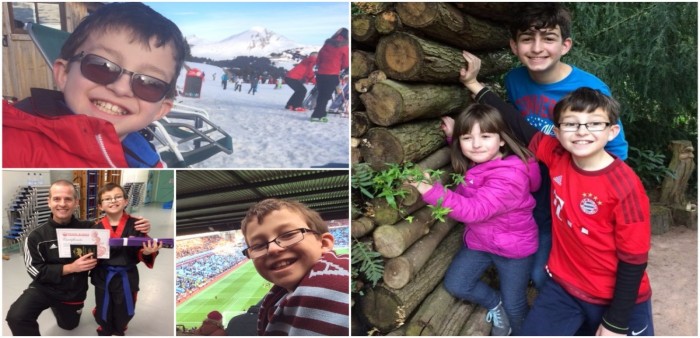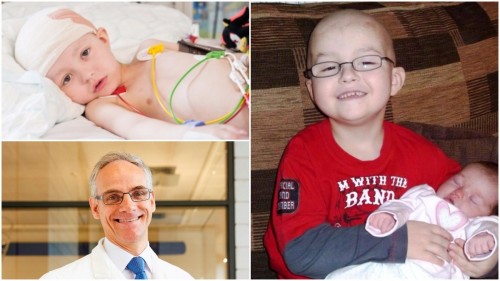Archived
Please note, this page may contain outdated information or subject matter.
When Joey was diagnosed with brain cancer aged four it was a devastating time for his family. Thankfully, treatment worked well and Joey, who's now 12 years old, is thriving - along with the whole family. We’re delighted to share this update. Thank you, Kathryn and Darren!

Joey enjoying life with big brother Ben and little sister Hannah - and receiving his purple belt in karate
“Joey is doing really well – we are continually amazed by his achievements and we are immensely proud of him. He’s an avid Aston Villa supporter and regularly goes to their matches with his dad and brother and enjoys a good football kick about with his friends. Joey passed his Grade 4 piano last November and plays the piano in church and at school. He is a 4th Kyu with merit (purple belt) at his local karate club. Joey also enjoys skiing and is now proficient at skiing red runs! What a star!!”
World Brain Tumour Day is on 8 June

More about Joey
Joey was treated under the care of Professor Andrew Peet, pictured here alongside Joey when he was being treated for brain cancer. Action Medical Research is proud to support Professor Peet and his team as they work to help children like Joey.
With funding from Action and The Brain Tumour Charity, Professor Peet is aiming to find a way to get more detailed information from MRI scans for children with brain tumours, by developing a sophisticated technique to investigate the chemical makeup of tumours. Together with his team at the University of Birmingham, Professor Peet seeks to be able to better predict how aggressive each child’s cancer might be, and so identify the best treatment – helping ensure that children are given the right treatment in the least invasive way.
“This work is amazingly important,” Joey’s dad Darren says. “It will help doctors to aggressively treat children with brain tumours when this is necessary, but not over treat. The more data you have got, the better. Treatment can become more tailored, more individual and so potentially cause the child less harm."
You can find out more about this study here and read Joey's story here.
